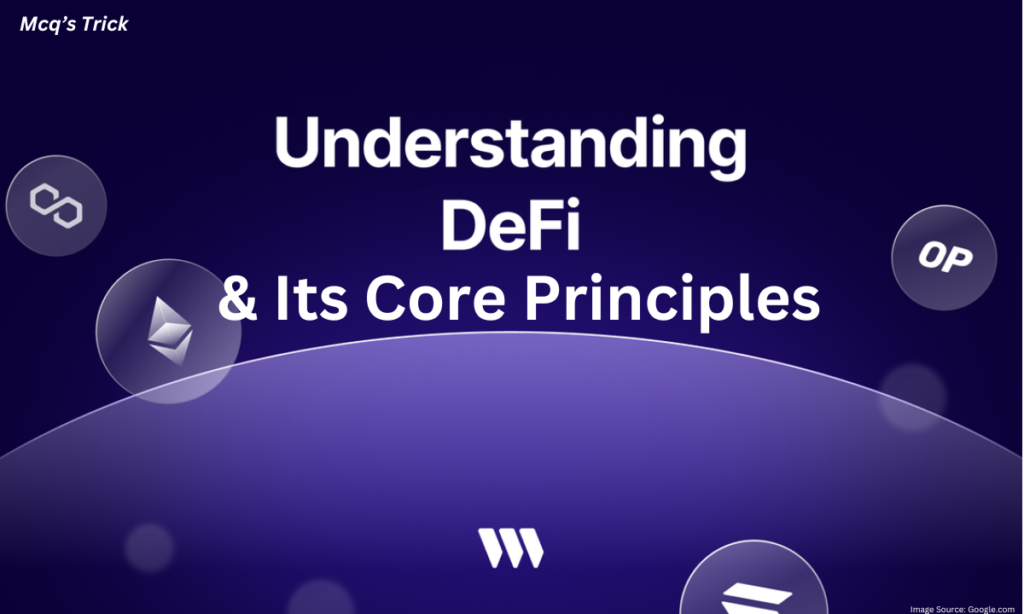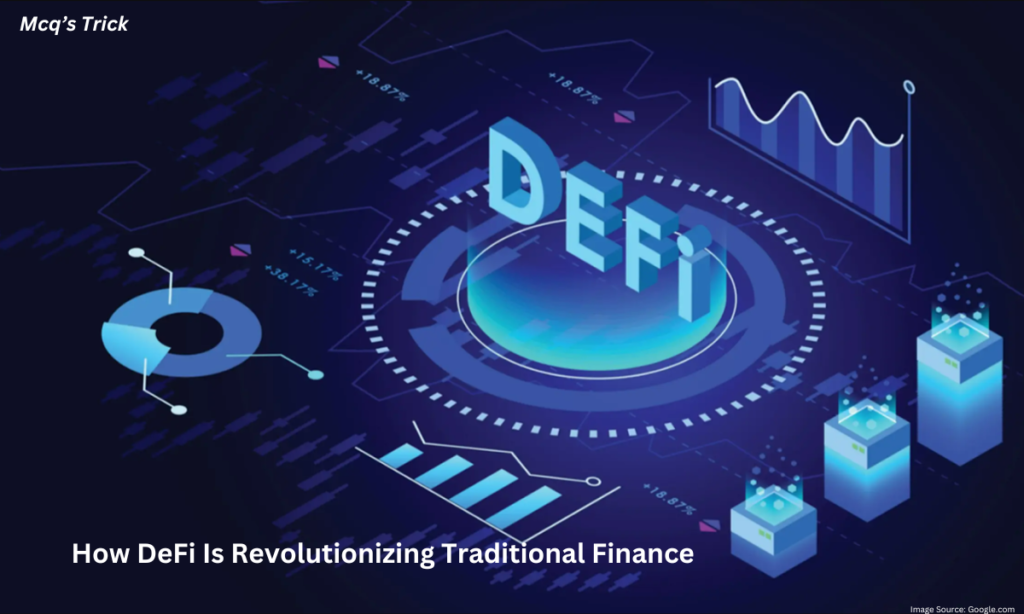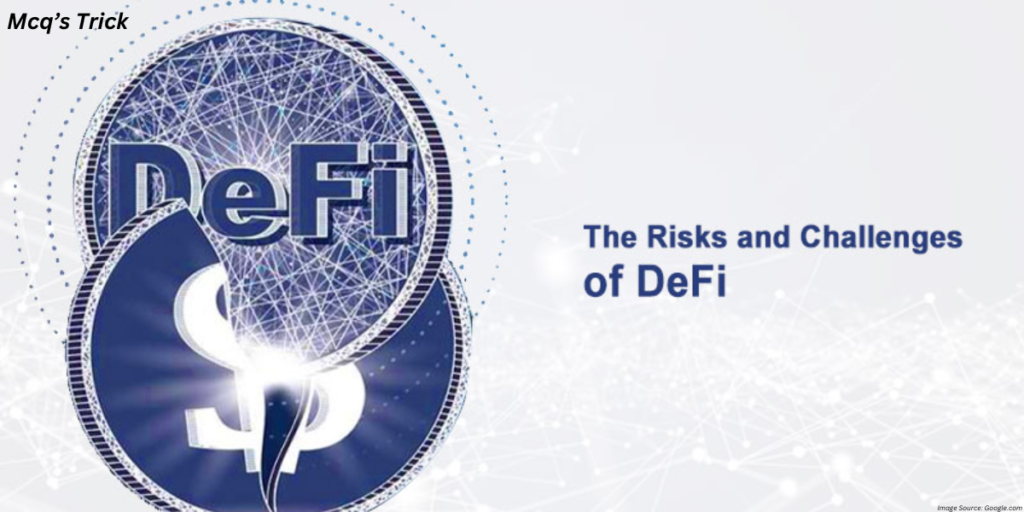Decentralized Finance, or DeFi, is a revolutionary transformation in the financial ecosystem where blockchain technology is used for decentralized alternatives to traditional financial services. It is, therefore, a peer-to-peer mode of financial transactions without central banks and financial institutions, through smart contracts and dApps. Digital currencies such as Bitcoin and Ethereum have set up this new era of freedom and inclusion in finance.
Table Of Contents
Understanding DeFi & Its Core Principles
At its core, DeFi aims to democratize finance by enabling anyone with an internet connection to access financial services. Traditional banking systems rely on intermediaries such as banks and payment processors, which can create barriers to entry. In contrast, DeFi allows users to directly engage in financial activities such as lending, borrowing, and trading without relying on centralized authorities. Blockchain’s transparency, security, and immutability are central to DeFi’s success.
- It is based on blockchain technology, hence allowing for decentralized operations.
- It offers greater transparency and security in financial transactions.
- The peer-to-peer systems are preferred to the traditional banking models.

The Role Of Digital Currencies In DeFi
Digital currencies are the foundation upon which the DeFi space is premised; these include all cryptocurrencies like Bitcoin and Ethereum. Bitcoins and other cryptos establish a decentralized version of money that is freed from being controlled by central governments or traditional bank systems. Various financial activities can then be performed by digital currency in DeFi, like payments, saving, or investing. Meanwhile, lending and borrowing via decentralized means are facilitated in cryptocurrencies, therefore allowing more pliability in managing their assets.
- Cryptocurrencies allow decentralized financial services.
- These can be used for payments, lending, and collateral in DeFi.
- Lack of intermediaries increases efficiency and reduces costs.
How DeFi Is Revolutionizing Traditional Finance
DeFi is challenging the conventional finance by providing services once reserved for banks and other financial institutions. For instance, DEXs permit users to trade assets without having to rely on any central platform. DeFi lending permits individuals to earn interest on their cryptocurrencies, thereby bypassing a savings account with a lower interest rate. This new disruption is changing the entire landscape, giving individuals a better control over their financial assets.
- DEXs enable peer-to-peer trading without the involvement of middlemen.
- DeFi lending pays higher interest compared to traditional savings accounts.
- DeFi is democratizing access to financial services.

Benefits Of DeFi For Users
One of the greatest strengths of DeFi is its accessibility. Anyone with a smartphone or internet connection can participate, regardless of his or her geographic location or financial status. The fees are also relatively low on DeFi platforms compared to traditional banks. The use of smart contracts in DeFi eliminates the need for trust between parties because it automatically executes transactions when certain predefined conditions are met.
- DeFi allows the unbanked to access financial services.
- DeFi is cheaper since its fees are relatively low.
- Smart contracts enable transactions, thus removing intermediaries.
Risks And Challenges Of DeFi
Although DeFi has several advantages, it is not without problems. The lack of regulation in the DeFi sphere leaves it vulnerable to the weaknesses of bugs in smart contracts or security breaches. Additionally, cryptocurrencies are very volatile and, thus, pose a risk for users because their value might fluctuate dramatically. Furthermore, DeFi is still at its nascent stages, and the problem of scalability, interoperability, and education will need to be solved when more people begin using the service.
-DeFi has no regulation, which presents risks of insecurity.
Cryptocurrencies are volatile, affecting investments for users.
The industry must solve scalability and educate users on how to interact with it.

Future Of DeFi: Opportunities And Possibility
With blockchain technology being developed further, the future of DeFi holds a lot of promise. Solutions such as Layer 2 are envisioned to bring scalability to blockchain networks and will possibly increase user experience with reduced transaction costs and greater processing speed. Also, integrating traditional finance into DeFi through ideas such as decentralized insurance and stablecoins might result in a hybrid system where the best features of both are available together.
- Layer 2 solutions could improve DeFi scalability.
- Decentralized insurance and stablecoins could bridge traditional and decentralized finance.
- Continued technological advancements will enhance DeFi’s usability and adoption.
How Digital Currencies Are Changing Finance
Digital currencies are playing the crucial role in reshaping the finance sector. As more and more people and businesses adopt the cryptocurrency, digital currencies are deeply entering the global financial system. Governments and central banks have started to explore the feasibility of Central Bank Digital Currencies (CBDCs) that could provide the government-backed alternative to decentralized cryptocurrencies. The emergence of digital currency has forced traditional financial institutions to innovate leading to a more dynamic and competitive financial environment.
- Digital currencies are gaining broader acceptance in global finance.
State-backed alternatives are available from Central Bank Digital Currencies or CBDCs.
Mainstream financial institutions are taking the rise of cryptocurrencies well.
Conclusion
In a nutshell, DeFi is a paradigm shift in the financial sector as it allows people to empower themselves by giving them decentralized, transparent, and cost-effective alternatives for banking services. This is the core of the change digital currencies provide, which lets users participate in an array of financial activities without intermediaries. However, challenges persist; however, the future of DeFi and digital currencies promises significant changes, and further development will likely result in more inclusive, efficient, and innovative financial systems.
FAQ’s
How is DeFi changing finance?
DeFi is transforming finance by decentralizing financial services, reducing reliance on intermediaries, and offering transparent, efficient, and accessible alternatives to traditional banking systems.
How can cryptocurrency change finance?
Cryptocurrency enables faster, borderless transactions, lowers fees, and promotes financial inclusion, challenging traditional finance by providing decentralized control over assets and transactions.
